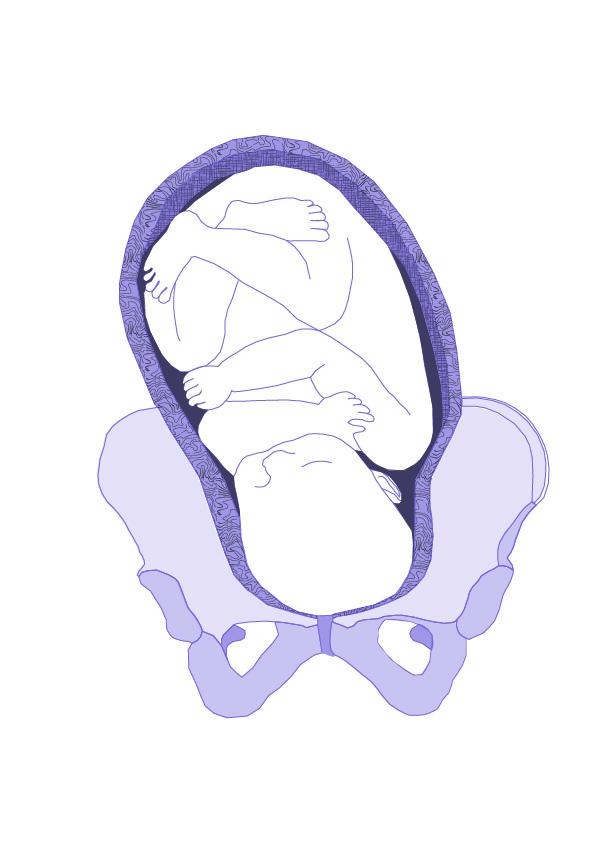
4 minute read
Part IV: The Matching
from Utopia A3
PART IV: The Matching
The doors slide open in perfect synchronization with the chime of the bell as I step into the elevator with eight others. Nine of us in total filled the elevator in a perfect 3x3 grid formation. No more, no less. This is just a glimpse into what my life now at the age of 32. Function, efficiency, and perfect balance are what rule this world. Today is Matching Day, an annual procedure where all young adults around the age of 30 are analyzed and measured by skill in order to determine the perfect match for their life partner. It’s a connection that works, and that’s all anyone needs to be satisfied here. What the other candidates don’t know is that I’ve already gone through this procedure twice—the same lab tests, interview questions, and physical examinations—but I still haven’t received the engraved ring that signifies your matched status with another person. What I do know is that if I still don’t have a match by the end of this round, next year will be my third and final chance. There’s a reason why no one over the age of 33 is unmatched here, but no one has ever informed me what happened to those who aren’t. Unless I am the first. It’s a frightening thought, but in a world of rules and order, this should be a fact I should merely accept, right? An automated voice recites my name over the speaker, and I walk myself into the same room I entered exactly a year ago. In appearance, it is identical to every other room in this building: stark white walls, concrete floors, and a sterile yet simultaneously metallic scent in the air. However, I recognize the same examiner who tested me last year and know they realize the same, although they make no expression of it. And so the examination begins. "Name?" the examiner asks with my file in her hand. "Artemis. " "Age?" "32, " I reply with a slight delay. "Skill?" "Art. " The examiner repeats my answer as if the word is a foreign taste in her mouth. After a noticeable pause, she stands and points toward a 3 m x 3 m cubicle, where she instructs me to demonstrate the use of my skill in exactly 60 seconds.
Advertisement
I walk into the pristinely clean cube and close my eyes, silently conjuring the tools I have been so familiar with since childhood into my open hands. The smooth handle of a paintbrush, a round palette splattered with flaking spots of paint, and the smell of a fresh canvas awaiting me on the easel. For a minute, I forgot about the cold room around me and enjoyed what I do best. Creating new forms and mixing colours I never knew could be mixed together. Only while I created art did I feel truly myself and different from the rest of this monotonous, black-and-white world. Yet it seems that no one has been able to appreciate my artistic visions before, as if they lacked that same spark inside of them that allowed them to comprehend the happiness of creating. By the end of it, I’m breathless and could almost describe myself as exhilarated, but any tangible spark of that vanishes when I look back into the grey eyes of my examiner. "Thank you; you may return outside and await your match results there, " she stated as if the past 60 seconds had not happened at all. If I hadn’t turned back for a glimpse at my messy yet beautiful canvas, I would’ve thought it had not happened at all. I sit with perfect posture in the waiting room outside, along with dozens of other applicants awaiting their results. We are called in order of birth date, and I just happened to be born at the end of the year. I watch as the number of candidates in the room gradually decreases until only my row remains. I wouldn’t say I am distraught because that’s something I am not capable of feeling, but there was a cold solidarity creeping in on me. For the past six hours, I have watched as candidates were called along with their Matches to the reception booth and given the rings that symbolized their perfect compatibility. They were then guided through a set of grand double doors that I have never had the privilege of entering. It was a routine process, similar to waiting for a doctor's appointment, minus the coupling and rings, but it was the assurance and satisfaction of Matching that they received.
There were now only two candidates left with me in the waiting room, but it did not even surprise me when they were announced as the final match. I accepted my fate as the security guards approached and led me down the dark hallway opposite of the double doors yet again. As I followed the sound of their reverberating footsteps, the dread that no one would ever find my skill useful deepened within me.






